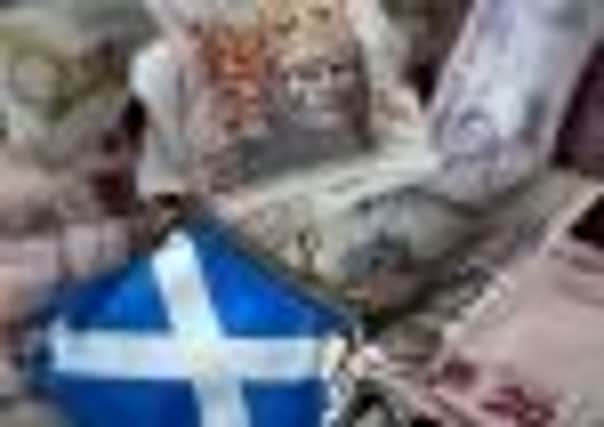Scottish independence: SNP’s radical tax plan


The review, written by Nobel Prize winning economist Sir James Mirrlees in 2011, claimed that the “absurd” mess of the UK tax system led to billions of pounds being squandered due to avoidance and abuse.
Mirrlees, who sits on the SNP Government’s Fiscal Commission, is now overseeing work by the Scottish Government to set out their own tax plan if the country backs independence.
Advertisement
Hide AdAdvertisement
Hide AdHis 2011 report concluded that council tax bands should be overhauled so they were based on current property values. It also said fuel duty should be scrapped in favour of congestion charges and income tax merged with National Insurance.
Other radical recommendations included charging VAT on all goods and taking savings out of tax altogether.
The call to plan a leaner tax system was one of the key recommendations of the independent Fiscal Commission last month, headed by former Scottish Enterprise chief executive Crawford Beveridge, which said that ministers should now “take forward a programme of work to scope out and design an efficient and cost effective tax system.”
Mirrlees’s report, published by the Institute of Fiscal Studies, will now form the bedrock of that work.
Minutes from the Commission’s most recent meeting on 7 February say: “Members (of the group) took forward a discussion on the principles on the design of an effective system and the scope to consider different forms of taxation to meet revenue requirements.
“The work of the Mirrlees Review would provide a helpful starting point and any Scottish Government work to consider this policy area could be informed by some high level principles informed by such reviews.”
The YesScotland campaign has also backed the idea of a completely new tax regime after independence. In a recent paper, it argued: “Independence gives us a chance not just to play around on the margins with the current Westminster tax system, but over time to design a system that reflects Scottish needs and priorities.
The paper said that a new plan should, “as a starting point, move away from any assumption that the current system of tax collection in the UK, which has enabled a culture of tax avoidance to be fostered, is in anyway a suitable model for Scotland”.
Advertisement
Hide AdAdvertisement
Hide AdMirrlees’ call for reform has been largely ignored by UK ministers. Mirrlees concluded that ministers had to bite the bullet in order to make the tax system more efficient. “Governments, understandably, shy away from making tough decisions, postponing pain, which on occasion stores up much greater problems in future.
“The facts that we still pay a tax based on the value of our houses in 1991 and that we still have two separate systems of income taxation are both products of failure to tackle politically difficult anomalies in the tax system.
“Government in a media-driven democracy is difficult and there is a need to work within the bounds of the politically feasible. But there is a better way to make tax policy.”
A major reform would be a risk for the pro-independence campaign, throwing into doubt popular current measures such as the council tax freeze, free tuition and free personal care.
A Scottish Government spokeswoman said last night that its review would not be examining “specific taxes”, as proposed in the Mirrlees review.
Meanwhile, there were growing signs that the three main Westminster parties might come together to create a UK-wide constitutional convention to examine the distribution of powers across all four countries of the United Kingdom.
Politicians from the Tories, Labour and the Lib Dems have indicated they want to look at the strength of the devolved governments in Scotland, Wales and Northern Ireland in the event of a No vote in the Scottish referendum.